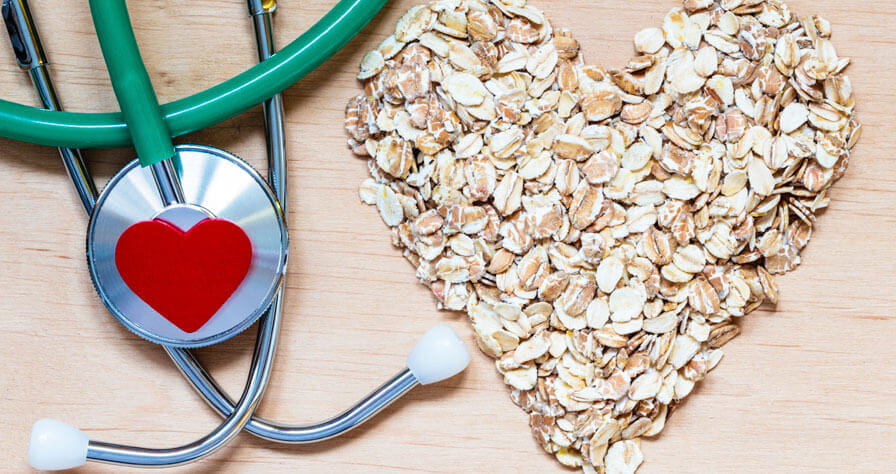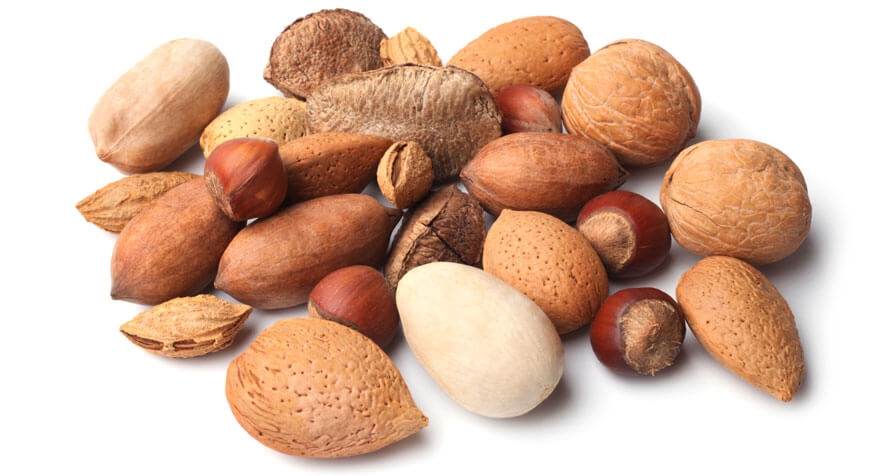Tips for Lowering Cholesterol

Cholesterol is a fatty organic compound that plays an important role in your body’s ability to produce healthy cells. Unfortunately, having too much cholesterol in your bloodstream can increase the risk of heart disease and strokes. You can lower this risk by reducing your cholesterol levels.
High cholesterol is impacted by genetic and lifestyle factors. Medications are available for lowering cholesterol but there are also positive steps that you can take to support this change. Here are seven tips for reducing your cholesterol.
What Causes High Cholesterol
Seven of the most important risk factors for high cholesterol are:
- Obesity: Being obese increases your risk of high cholesterol and other health issues. Keeping your body mass index (BMI) at the level recommended by your doctor is important.
- Poor diet: Having too much saturated fat or trans fats in your diet is bad for your cholesterol levels. Cutting back on these foods can help you manage your cholesterol.
- Smoking: Smoking cigarettes may raise your bad cholesterol and lower your good cholesterol levels. If you smoke, you should quit.
- Alcohol use: If you drink too much alcohol, it can raise your total cholesterol level. You should consume alcohol in moderate amounts (one drink per day for women, and two for men) if at all.
- Sedentary lifestyle: Being inactive is bad for your cholesterol levels and your body in general. Getting 30 minutes of exercise on most days of the week can raise your good cholesterol level and improve your physical and mental health in many other ways, as well.
- Unmanaged stress: Continually high levels of stress can increase your cholesterol level. Pay attention to the things in your life that are stressful and, as much as possible, act to minimize them.
- Family history: A tendency toward high cholesterol runs in some families. This is likely caused by genetic factors not entirely under your control. In these situations, evidence for high cholesterol often first appears early in life, rather than in middle or old age. There are still positive steps that you can take. Meet with your doctor and develop a plan for managing the factors that are under your control.
Changing your diet and activity level isn’t easy. However, the payoff for your commitment is a lower risk of serious illness and better overall health.
Types of Cholesterol
Cholesterol is carried through your bloodstream attached to a chemical substance referred to as a lipoprotein. There are two primary types of lipoproteins: low-density lipoproteins (LDL), sometimes called bad cholesterol, and high-density lipoproteins (HDL), the good cholesterol.
Low-Density Lipoproteins (LDL)
You can think of low-density lipoproteins as a delivery vehicle for transporting fats around the body. These fats include cholesterol and triglycerides, another substance associated with increased risk of heart disease and strokes.
If you have too much LDL, fatty deposits can accumulate in your blood vessels. If these deposits grow large enough, they can reduce blood flow through the vessels or block the flow entirely. A second risk is that some of the deposit can break away and form a clot elsewhere in the body. If the clot is substantial, it can lead to a heart attack or stroke.
High-Density Lipoproteins (HDL)
High-density lipoproteins have a different role. They circulate through the bloodstream picking up unattached cholesterol and other fats and returning them to the liver. If LDLs are transport vehicles for distributing cholesterol through the body, HDLs do the opposite, taking unused cholesterol back to the liver for storage.
Having high levels of HDL in your bloodstream is heart healthy. By returning cholesterol to the liver, HDLs reduce cholesterol buildup in your veins and arteries.
Ways to Lower Your Cholesterol
There are a number of lifestyle changes that you can make to positively influence your cholesterol levels. We’ve summarized the major steps here.
1. Adopt a Heart-Healthy Diet
Though your body can synthesize cholesterol, you also ingest it in the foods that you eat, especially in meat and other animal products. Minimizing your intake of these foods can reduce your levels of cholesterol and unhealthy fats, while increasing your consumption of heart-healthy foods can lead to positive changes in cardiovascular health.
Monitor Your Saturated Fats Intake
Having too much saturated fat (like from fatty meats and full-fat dairy) or trans fats (often found in packaged foods) in your diet is bad for your cholesterol levels. Saturated fatty foods include butter, full and low-fat dairy products, coconut oil, and red meat.
According to the American Heart Association, you should consume no more than 13 grams of saturated fat on a daily 2,000-calorie diet. To meet that goal, try substituting the following foods for saturated- and trans-fat foods:
- Salmon
- Whole grains
- Fruits
- Vegetables
- Non-fat dairy products
Eat More Polyunsaturated And Monounsaturated Fats
Some fats are essential to a healthy diet. Chief among these are the polyunsaturated and monounsaturated fats. Both of these fats can help lower your LDL cholesterol. They’re also rich in nutrients that your body needs but can’t produce on its own, such as the omega-3 and omega-6 fatty acids.
Fish are a great source of unsaturated fats. Included are:
- Anchovies
- Cobia
- Cod
- Herring
- Mackerel
- Salmon
- Some basses
- Tuna
- Whitefish
Other sources are seeds, nuts, canola oil, sunflower oil, soybeans, and avocados.
Eat More Soluble Fiber-Rich Foods
Some people looking to lose weight eat foods rich in soluble fibers. This increases gut health, slows digestion, and reduces hunger pangs. What is less known is that fiber-rich foods can also improve heart health, by blocking the absorption of LDL cholesterol into the bloodstream.
The best means of increasing dietary fiber is to eat whole foods. Great sources of fiber include:
- Oats
- Beans
- Peas
- Apples
- Sweet potatoes
- Brussel sprouts
- Eggplant
Add Whey Protein to Your Diet
A byproduct of cheese production, whey protein contains most of the health benefits of dairy foods. Medical research has shown that, when whey protein is taken as a supplement, it can reduce LDL levels in the bloodstream. This may result from the presence of lactoferrin, a protein compound that interferes with plaque formation on blood-vessel walls. Whey protein can increase HDL levels as well.
Avoid Refined Sugars
Refined sugars are those that have been extracted in a close-to-pure state from their natural sources (for example, sugar cane, beets, or corn). Sugars aren’t particularly harmful for most people if eaten in moderation. However, excessive consumption of sugar can lead to the increased production by your body of LDL cholesterol and triglycerides, both of which pose a risk to heart health. Avoid refined sugars, and excessive sugar consumption, if you’re actively managing your cholesterol.
2. Lose Excess Weight
Obesity is associated with a number of adverse medical conditions, including heart disease, hypertension, diabetes, and strokes. Many people suffering from one or more of these conditions will also show evidence of hyperlipidemia, or high cholesterol levels. Weight loss can result in a wide range of health benefits. If you weigh more than is healthy, there are lifestyle changes for looking and feeling better. Lower cholesterol levels could be one of those results.
3. Exercise Regularly
Keeping active is good for your physical and mental health. This can be difficult in our increasingly sedentary lives, with long sessions sitting in chairs in front of computer screens. The solution is to make time for exercise. Regular exercise can improve cardiovascular health, enhance muscle strength, and boost flexibility. It’s also a good way of increasing bloodstream HDL and lowering the risk to your health posed by high cholesterol levels.
- Stretching
- Walking during a lunch break
- Walking or biking to work
- Taking the stairs rather than the elevator
- Exercising at your desk
- Jogging in place
4. Quit Smoking or Vaping
Smoking is negatively associated with a variety of medical conditions, including elevated cholesterol levels. Smokers tend to have higher levels of LDL bad cholesterol and triglycerides than non-smokers, along with lower levels of HDL good cholesterol. Smoking cessation is a positive step for reducing the risk posed to your heart by high cholesterol.
5. Relax More
Did you know that stress can impact your cholesterol levels? When someone manages stress in an unhealthy way (i.e. self-blame or social isolation), HDL cholesterol decreases while LDL cholesterol increases.
This happens when the body, reacting to stress, provides fuel to prepare for a “fight-or-flight” situation. This signals the liver to produce and secrete more LDL cholesterol. Meditating at least 15 minutes and getting six to eight hours of sleep daily will help beat stress and stabilize cholesterol levels.
6. Reduce Alcohol Consumption
Drinking alcohol in excess can contribute to heart disease and several other serious health problems. It has been shown to increase triglyceride levels in the blood. Excessive drinking is also damaging to the liver, which is the primary organ for producing and regulating the body’s cholesterol levels.
7. Talk to Your Doctor About Medication
For some people, lifestyle changes may not be enough to establish healthy levels of cholesterol. This may include individuals with a family history of high cholesterol, due to genetic factors. In cases such as these, your physician may prescribe a medication to assist you (though never as a substitute for positive lifestyle changes).
Invest in Your Cholesterol Care
High cholesterol has been linked to an increased risk of both heart disease and strokes. Unfortunately, having an elevated cholesterol level is a medical condition without obvious symptoms. The only way to know if you have a cause for concern is through bloodwork. Take our Heart Health Assessment as a positive first step. The next step is to see your physician. If you don’t have a physician, find a cardiologist at Baptist Health.
Next Steps and Useful Resources
Learn more about Heart Care
Heart Home Care Services
Left-Sided Heart Failure vs. Right-Sided Heart Failure
How Does Your Heart Work?



